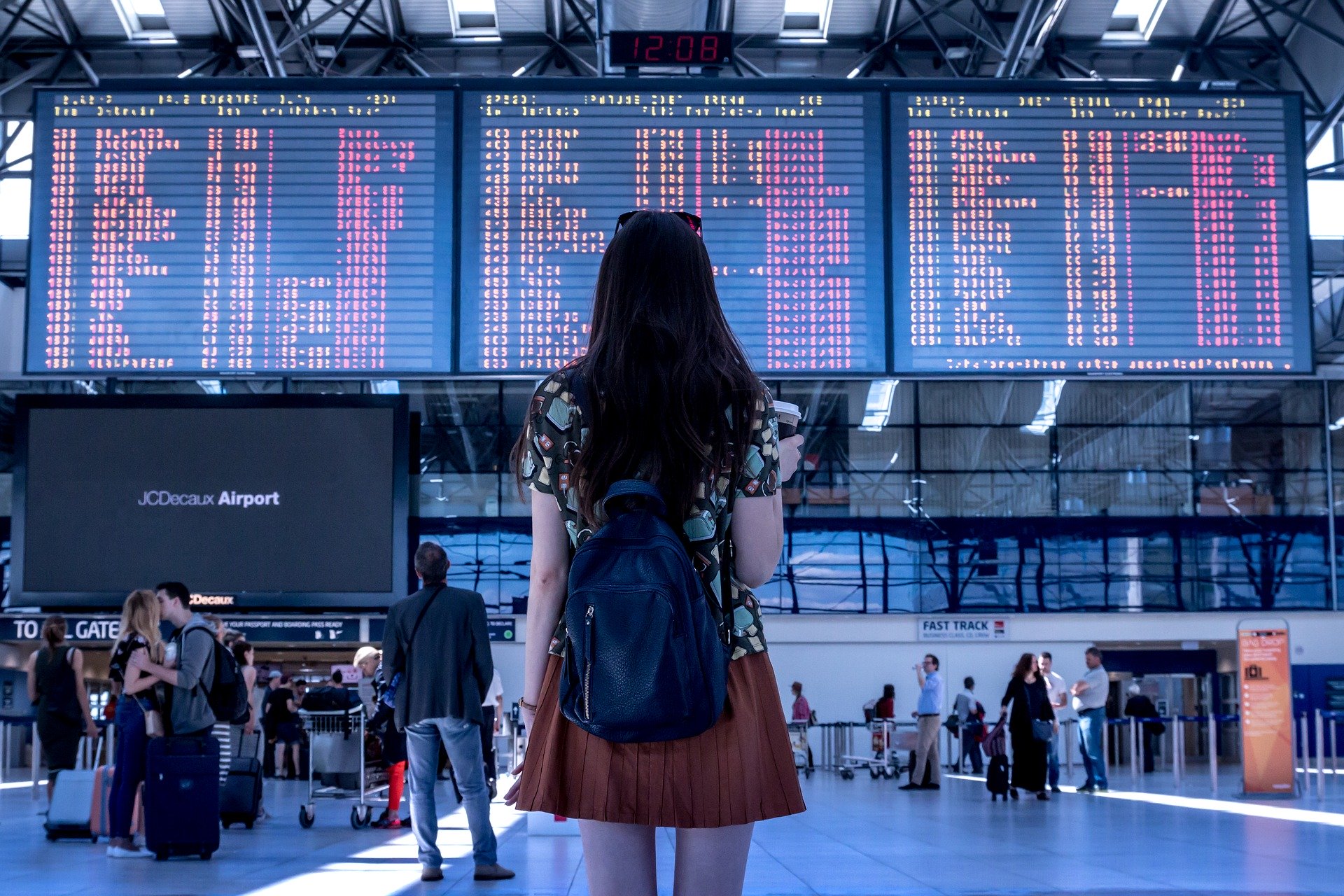By Eva Vicent, Veuremón founding partner
Tourism: one of the most affected industries by the coronavirus crisis
According to the report of the World Tourism Organization (UNWTO) in January 2020, tourism continued to grow in 2019, with an increase of 3.8% over the previous year, reaching the figure of 1.5 billion travelers in the world. Looking ahead to 2020, the year was expected to end with an increase of between 3 to 4%, following the tendency of 2019, but of course, the data will be severely damaged due to the current pandemic of COVID-19.
Moreover, a recent study by the University of South Florida revealed that almost 64% of travelers will reduce their travel plans in the next 12 months. More than half canceled their business travel immediately due to the coronavirus. The tourism industry will shrink by 50% in 2020, which would mean a significant loss of jobs and revenue.
Besides, the contribution of European tourism to the EU’s GDP is in the order of 10-11% and accounts for 12% of employment. Last week, the IMF warned of the risks faced by the southern eurozone countries – Spain, Italy, Portugal and Greece – whose economies are heavily dependent on tourism.
Thus, the EU indicated that as a result of the pandemic, tourism in Europe would drop 70% due to coronavirus. The travel and tourism industry could lose between 275 thousand and 400 billion euros due to the pandemic.
There is no doubt that the crisis that the COVID19 pandemic is causing will mark an inflection point in the way of traveling, until the moment when the vaccine is a reality. But, at this moment, our world is on pause.
COVID free certification: could be a solution?
Different articles from different authors mark a direction with many points in common, among them and the most remarkable is that without the confidence and security of the potential tourist about the destination or the services they are going to consume (accommodation, transportation, catering, etc.) it will not be possible to carry out the trip.
Because of this, the tourism sector is launching awareness campaigns through tourism agencies, as well as creating action protocols in the different companies of the sector and also the creation of certifications to increase the confidence of tourists. Certifications or health guarantee stamps such as “COVID19Free” which will be used by an accommodation that meets the corresponding requirements. This certificate is supported by a protocol of measures and instructions that have been ordered by the Ministry of Health, through its Guide of Good Practices for Establishments and Workers in the Tourism Sector.
A preview of what will come after the pandemic is already being seen in companies operating in China, which will use less furniture, more space and more cleaners to ensure proper disinfection.
It will no longer be enough a beautiful decoration or an exceptional customer service, the hotels must be totally disinfected spaces. A clear example of this is Marriott International, which has set up a kind of cleaning cabinet to promote hygiene measures in all its accommodations, adapting to the regulations of each country.
These COVID-free hotels use electrostatic sprays with hospital disinfectants to clean the surfaces of rooms, lobbies, gyms and other public areas. In addition, it is likely that inside of these accommodations are signs to remind guests that a certain social distance must be maintained.

On the other hand, protection screens could be installed at the accommodation reception or check-in and check-out could be managed directly through an app on customers’ mobile phones to avoid contact with the reception staff.
Some destinations in Spain such as Alicante have already started to launch campaigns to indicate this certification:
Another important role will be played by technology, through this it is possible to redirect traveler flows by the use of tools such as Smart Tourism, e-commerce and Big Data, which allow with the integration of online platforms, to articulate more precise supply and demand data, avoiding crowds.
What about transport?
Regarding transport, empty rows of seats to prevent infection in airplanes and trains mean unsold tickets – and initially, a loss that has to be made up with more expensive seats. If a possible ordered “decongestion” were to be implemented, the International Air Transport Association (IATA) assumes that passenger numbers could fall by a third, and ticket prices could rise by half. But ultimately “this would be determined by supply and demand”, says IATA boss Alexandre de Juniac.

Will traveling become a luxury again?
Looking ahead, the industry hopes to make domestic tourism the foundation for recovery amidst worldwide travel restrictions, but the purchasing power of the citizens after months of self-isolation is a matter of concern. The experts forecast that summer will be marked by ‘staycation’ (also known as ‘holistay’), a term coined in the industry to define a period in which individuals stay home and participate in activities within driving distance, skipping overnight accommodations.
On the other hand, luxury can be more sustainable, at least environmentally friendly – and now even more pandemic-compatible. It is not for nothing that many countries already rely on trips for the wealthy. New Zealand, for example, Bhutan for a long time, or Botswana and Tanzania. Backpackers are less and less desired while offers for luxury trips are welcomed. The more money stays in the country and with the locals, the more environmentally friendly can be the facilities.
Traveling will, therefore, have more value again. At least as long as the coronavirus can spread. Whether it is a city trip or a farm holiday, we have to weigh up, maybe instead of three trips, only one will be possible.
People without money for even a single trip will be left behind in the future. For those who enjoy their holidays on the beaches of Mallorca or Ibiza, and in resorts in Turkey or Bulgaria: these trips will also become more expensive in the future, and for many – especially if they have perhaps been on short-time work or even lost their jobs – will even become unaffordable. Holidays could also be organized cheaply and easily with little money, but hiking and cycling, youth hostels or camping were not options for many until now.
So, what comes next?
It may be expected that the flight tickets will cost more, hotels will raise prices, traveling will probably become more expensive when the travel restrictions are lifted. Cheap flights at cut-rate prices will soon be the thing of the past.
It could once again open up the gap between those who can still afford to travel and those who do not have enough income to do so. But perhaps the virus could also do what politics has not been able to do up to now: more climate protection through fewer flights – not only in the few weeks of the global lockdown but also in the mid and even in longer-term.
Thus, the pandemic will probably make travel more expensive and thus also more climate-friendly and the future of tourism will encompass substantial changes.

